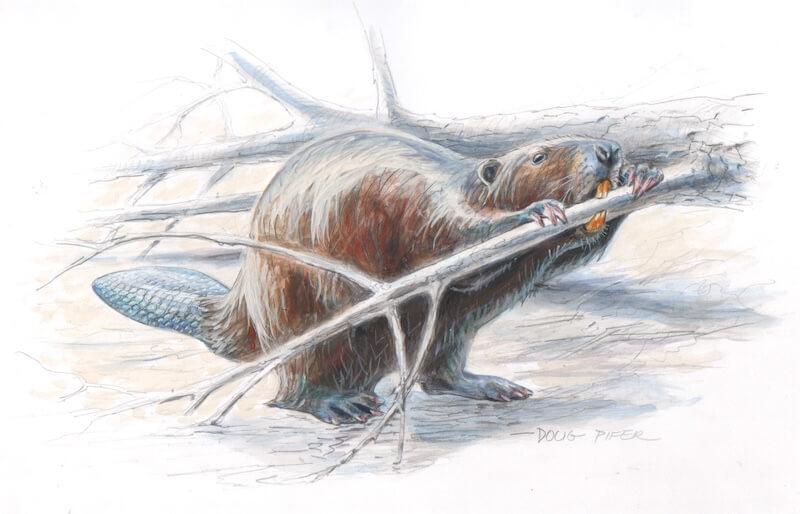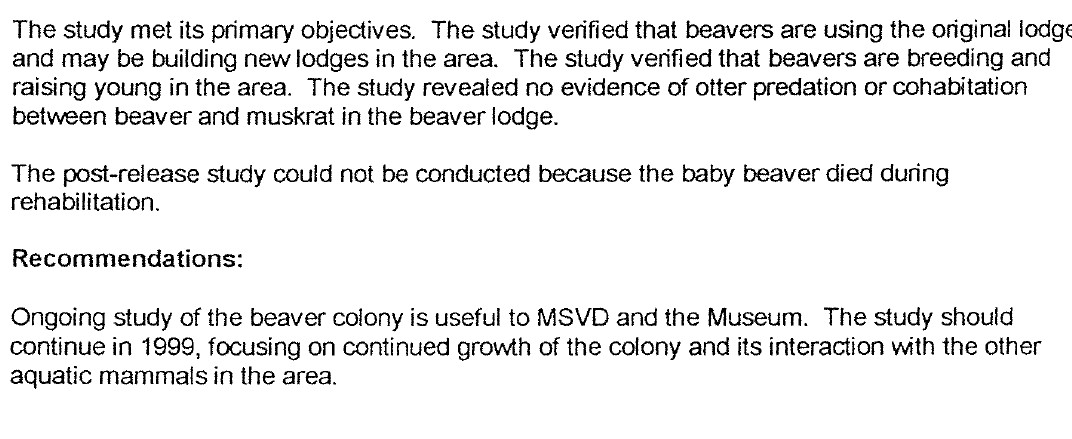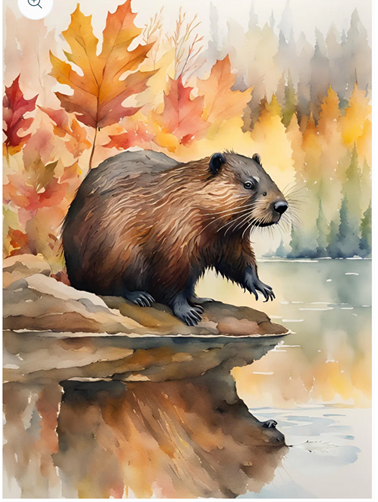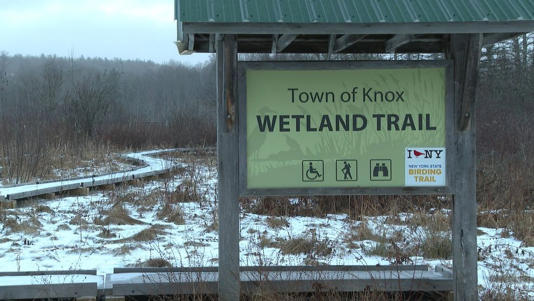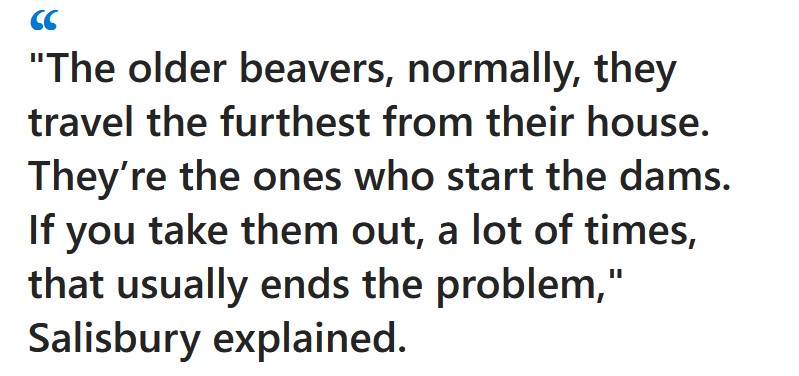Now this is MY kind of article. Enjoy!
Coexisting With Beavers
Beavers are aquatic rodents that depend on tree bark for their winter food. They don’t want to risk their lives wandering over dry land to get it, so they build dams on waterways to make their tree cutting and branch gathering easier and safer. But people don’t want flooded roadways, backyards, or farm fields.
When beavers lay claim to a stretch of water near humans, people usually respond by trapping and removing beavers, tearing down their dams and un-clogging beaver-blocked culverts. Soon other beavers come along, the people and the beavers keep doing what they do, and the conflict continues.
Trapping removes beavers only temporarily. They live and travel in family groups, and even skilled fur trappers don’t always catch all the animals from a given area. Live trapping and transferring beavers must be done in accordance with state game regulations. The beavers must be released in a suitable place, otherwise they become somebody
else’s problem.
Yep. That’s the problem. What we need is some kind of beaver hero to come swooping in and take care of things. Do you know of anyone like that?
A Northern Virginia-based organization, the Human Beaver Coexistence Fund (HBCF), encourages people to share land with active beavers while addressing beaver-caused flooding and tree-chewing in long-term, cost-effective ways. Alison Zak, founder and executive director of HBCF, conducts workshops and presentations for landowners and conservation groups about beaver behavior, natural history, and how beavers improve wildlife habitat. HBCF provides instruction and assistance to landowners wishing to minimize adverse effects of beaver activity.
If you already have a beaver pond on your land but don’t want beavers to flood the surrounding area, HBCF recommends setting up a pond leveler. An important flood management tool, it keeps the pond at a manageable level while allowing beavers to remain. Pond levelers last five to ten years and are more cost effective during this time than periodically tearing down dams and trapping beavers.
Speaking of heroes! Go Alison! And hurray for Martinez for showing everyone that this was possible!
Beavers immediately try to plug any leak in their dam so a pond leveler creates a leak beavers can’t find. A corrugated plastic culvert pipe is inserted through the dam and extends upstream, anchored to the bottom by weights. The upstream end of the pipe connects to an intake cage, where beavers can’t reach it. The height where the culvert pipe goes through the dam sets the water level. During periods of heavy rain, or if the beavers build the dam higher than the pipe, the water in the pond stays level with the pipe. Propelled by gravity, overflow goes through the dam and downstream, undetected by the beavers. A pond leveler can be adjusted for the depth of the pond, as chosen by the landowner, and suited to the size of the pond. It should be set to keep the beaver pond as large as possible, otherwise the beavers move on and create another dam elsewhere.
When beavers block a culvert, flooding results, so HBCF recommends setting up steel fencing around a culvert. Steel mesh fencing and metal poles are the best materials, and you need to inspect the fencing regularly to remove any debris blocking the water flow. Fencing needn’t extend high above the water since beavers don’t climb, but it should be buried deep enough into the substrate so beavers can’t
dig underneath.
Nice clear advice on the best way to deal with the beeves. This reporter apparently drew the illustration too. Good job. We like him.
Over the past several months beavers have chewed trees and dammed Bullskin Run at Cool Spring Preserve, the Potomac Valley Audubon Society’s Jefferson County property. Bullskin Run was backing up, and water was overflowing the road near one of the culverts next to the preserve. In partnership with HBCF, PVAS volunteers and staff installed culvert fencing and wrapped trees with special protectors to discourage damage by beavers. So far, these efforts seem to
be working.
HBCF has launched a Beaver Habitat Stewardship and Compensation program. Landowners in Maryland and Virginia who have beaver ponds on their property, and need to manage the beavers, may receive financial compensation, based on the impounded acreage plus a 35-foot buffer surrounding the beaver pond. Program participants who meet certain qualifications could receive up to $300 per acre over a three-year period from HBCF. For more information about this pilot program,
see coexistwithbeavers.org
Beavers create wetland habitat for threatened or endangered wildlife. Beaver dams have been found to improve our own water quality by reducing levels of nitrogen and phosphorus. They help control and retain sediments, reduce peak flood flow, raise the water table, and enhance groundwater recharge. Humans and beavers can coexist, even though our activities sometimes put us at odds with each other.
Beavers do more good things for the environment by the time you pour the coffee than most engineers do all day. Hows that for a new slogan?


